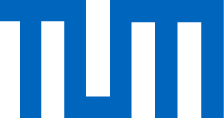
Scenarios
The application of Six Sigma requires mastery of the individual tools and understanding their interrelationships within the DMAIC framework. Our project scenarios facilitate the transfer from theory to practice.codierFabrik is a real time business game with a sample project. It allows students to apply all DMAIC tools and thus supports the transfer from theory to practice.
Cookie du Chef is a video about baking cookies. Problems of the process and their causes are presented - with a wink. The scenario is familiar to every participant and therefore provides an understandable basis for the application of Six Sigma.
codierFabrik:
codierFabrik is a real-time business game for 4-90 participants. Its purpose is to produce credit cards and earn money with them. To demonstrate the concept of Six Sigma one game round is sufficient, for Six Sigma trainings 3-4 rounds are recommended. One round lasts 15 minutes and the related improvement cycle - the core of the trainings - takes 1/2 - 3 days for each round.
The credit cards are produced by different codierFabrik teams, with 4-9 players each, in a process of consecutive workstations. The required material is delivered by the supplier of the codierFabrik. Deviations from the customer requirements lead to dissatisfaction and to financial losses.
These problems are illustrated by various key figures and charts. By the methodical application of tools, the process can be improved in 1-4 game rounds and will finally lead to a financial profit. The competition of several codierFabrik teams motivates the players to improve their processes in order to win the game.
This scenario offers participants from production and service processes opportunities for identification. This is because the information on each credit card results from simple, interdependent calculations, its creation is documented in the associated software, and at the end concrete products are produced and delivered. The codierFabrik is suitable for sensitizing managers to the topic of Six Sigma and Lean, for the training Green od Black Belt candidates, for motivating employees and for higher education.
It's just a game - but the dedication is real.
The scenario for the eLearning course is: baking cookies in a private kitchen. At first glance, this example project and especially the video about it seems too trivial to illustrate the complexity of business processes. This is not intended either. Nevertheless, this teaser already includes all relevant components that are important in real processes. and it offers several advantages for the teaching, and application of Six Sigma.







